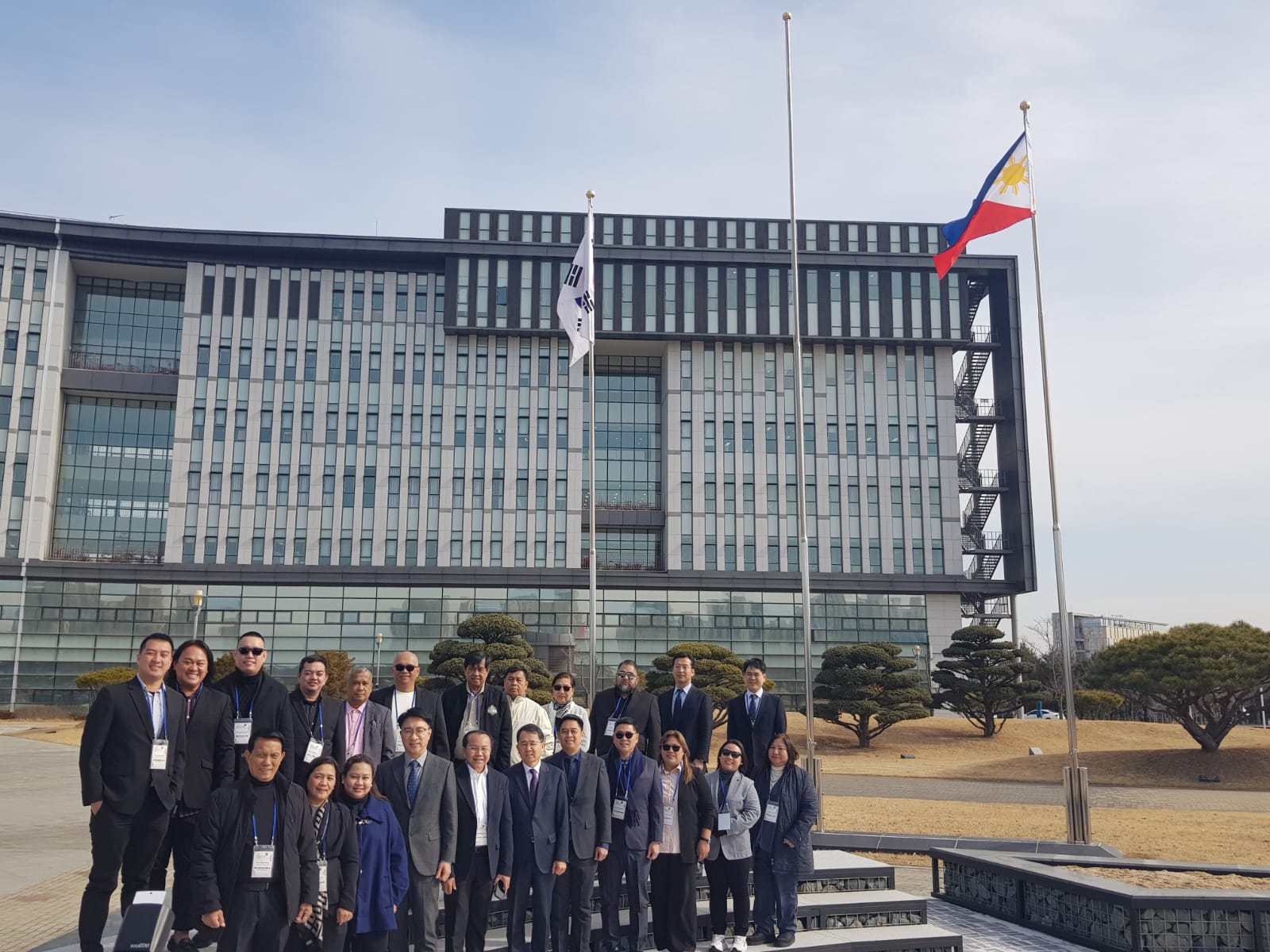
News
LOGODI News
Taguig City Leaders Gain Insights into Korean Smart City Development
| Author | 국제교육협력과 | ||
|---|---|---|---|
| Date | 2025-03-25 00:00:00 | Hit | 38 |
In February, LOGODI conducted a capacity-building program for 44 local government leaders from Taguig City, Philippines. The program were held in two groups from February 17–21 and February 24–28. LOGODI organized the training sessions at the request of the Department of the Interior and Local Government National Capital Region (DILG NCR) and self-funded commissioned by Taguig City. The delegation included Taguig City's vice mayor, congressman, city councilors, and barangay captains—barangays being the smallest administrative units in the Philippines.
The program was specifically designed to address challenges faced by Taguig City in its ongoing development projects aligned with the Philippine government’s GreenPrint 2030 initiative. Moreover, it builds on a similar initiative held last November for high-ranking Philippine officials following the strategic partnership declaration between Korea and the Philippines in October 2024. The success of these programs reflects growing cooperation between the two nations.
“This initiative is crucial for expanding educational and training collaboration between Korea and the Philippines,” said LOGODI President Ahn Joon-ho. “We are committed to ensuring that our experience contributes meaningfully to our partner countries' digital transformation and governance improvements.”
The program focused on sharing South Korea’s expertise in smart city development and public administration innovation. It featured a mix of theoretical learning and practical field visits to provide participants with a comprehensive understanding of advanced urban strategies. Key components included:
- Smart City Development Strategies: Case studies on Korea’s successful implementation of smart cities.
- ICT-Driven Administrative Reform: Exploring how technology can streamline governance.
- Economic Revitalization: Utilizing cultural resources to boost local economies.
Participants also visited notable sites such as the Anyang Smart City Integrated Information Center, a model for cutting-edge smart city infrastructure, and cultural landmarks in Jeonju and Seoul that showcase successful economic activation through tourism.
As cities worldwide face challenges from rapid urbanization and technological advancements, such international knowledge-sharing programs are becoming essential. This training strengthens ties between nations while providing valuable insights into addressing urban challenges. LOGODI has seen an increasing demand for self-funded capacity-building programs commissioned by foreign governments and organizations outside of Official Development Assistance (ODA) frameworks. These initiatives focus on developing skills and knowledge within specific sectors while fostering sustainable development.
The success of this self-funded program is expected to pave the way for more collaborative efforts in smart city development across the Philippines and beyond.
The program was specifically designed to address challenges faced by Taguig City in its ongoing development projects aligned with the Philippine government’s GreenPrint 2030 initiative. Moreover, it builds on a similar initiative held last November for high-ranking Philippine officials following the strategic partnership declaration between Korea and the Philippines in October 2024. The success of these programs reflects growing cooperation between the two nations.
“This initiative is crucial for expanding educational and training collaboration between Korea and the Philippines,” said LOGODI President Ahn Joon-ho. “We are committed to ensuring that our experience contributes meaningfully to our partner countries' digital transformation and governance improvements.”
The program focused on sharing South Korea’s expertise in smart city development and public administration innovation. It featured a mix of theoretical learning and practical field visits to provide participants with a comprehensive understanding of advanced urban strategies. Key components included:
- Smart City Development Strategies: Case studies on Korea’s successful implementation of smart cities.
- ICT-Driven Administrative Reform: Exploring how technology can streamline governance.
- Economic Revitalization: Utilizing cultural resources to boost local economies.
Participants also visited notable sites such as the Anyang Smart City Integrated Information Center, a model for cutting-edge smart city infrastructure, and cultural landmarks in Jeonju and Seoul that showcase successful economic activation through tourism.
As cities worldwide face challenges from rapid urbanization and technological advancements, such international knowledge-sharing programs are becoming essential. This training strengthens ties between nations while providing valuable insights into addressing urban challenges. LOGODI has seen an increasing demand for self-funded capacity-building programs commissioned by foreign governments and organizations outside of Official Development Assistance (ODA) frameworks. These initiatives focus on developing skills and knowledge within specific sectors while fostering sustainable development.
The success of this self-funded program is expected to pave the way for more collaborative efforts in smart city development across the Philippines and beyond.
| Next photo | Transfer Korea’s Experience on Administrative Innovation to Public Officials in Egypt |
|---|
